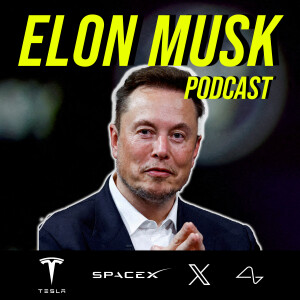

Two separate federal court rulings have struck legal and financial blows against Elon Musk and his business interests, raising questions about whether the world’s richest man is losing leverage in the court system he’s long relied on to defend his corporate strategies.
On Monday, a judge in Delaware formally invalidated Musk’s $56 billion Tesla compensation package, denying the company’s request to move its incorporation to Texas. That same day, a federal judge in California ruled against Musk’s attempt to dismiss a lawsuit accusing him of illegally firing employees at SpaceX who had circulated an internal letter criticizing his behavior.
The Delaware decision directly affects the most valuable CEO pay package ever created. Judge Kathaleen McCormick denied Tesla's motion to transfer its incorporation from Delaware to Texas, which the company had hoped would retroactively affirm shareholder approval of Musk’s compensation. She ruled that the original shareholder vote on Musk's 2018 pay package had not been fully informed due to undisclosed conflicts of interest among Tesla’s board members.
Tesla attempted to shift its corporate charter after McCormick voided the pay package in January, stating that Musk had undue influence over the supposedly independent directors who approved it. Monday’s ruling now cements her earlier opinion, keeping Tesla under Delaware jurisdiction and invalidating the proposed Texas move.
Tesla claimed that 77% of shareholders voted in favor of reincorporation to Texas. McCormick concluded that such votes did not repair the flawed process used to approve Musk’s compensation. She emphasized that the Texas vote did not constitute a ratification of the original pay package because shareholders still lacked full information at the time.
In California, Judge Maggie B. Corley rejected Musk’s request to throw out a wrongful termination lawsuit filed by eight former SpaceX employees. These workers claim they were fired after distributing a letter calling Musk’s online behavior damaging to the company’s culture. Musk’s lawyers argued that the letter itself disrupted SpaceX’s mission and violated internal policies.
Corley dismissed those arguments. She stated that the terminated employees had exercised protected rights under the National Labor Relations Act. She ruled that Musk’s defense failed to show that the firings were lawful or that the internal letter disrupted business operations to a degree that would justify dismissal.
The California ruling moves the case toward trial. It also affirms the position of the National Labor Relations Board, which has supported the fired workers’ claims since 2022. If SpaceX loses at trial, the company could face orders to reinstate the employees or pay damages.
The dual rulings came just hours apart. Neither involved criminal charges, but both potentially carry long-term consequences. Musk could lose tens of billions in stock options if the Tesla compensation package remains void. He also risks reputational harm and further scrutiny into labor practices at his companies.
The Delaware ruling may increase shareholder pressure on Tesla’s board to renegotiate Musk’s compensation. Several investors have raised concerns about the pay package's scale and the influence Musk holds over board members. The board has not signaled plans for a revised compensation deal.
The California decision draws attention to Musk’s management style and public conduct, which critics say can alienate workers and investors. The internal letter cited examples of Musk's tweets and online behavior as distractions that conflicted with SpaceX's workplace values.
Musk’s legal team has not yet announced plans to appeal either ruling. Tesla has not released a statement following the Delaware court’s decision, and SpaceX has declined to comment on the wrongful termination case.
More Episodes
All Episodes>>Create Your Podcast In Minutes
- Full-featured podcast site
- Unlimited storage and bandwidth
- Comprehensive podcast stats
- Distribute to Apple Podcasts, Spotify, and more
- Make money with your podcast












